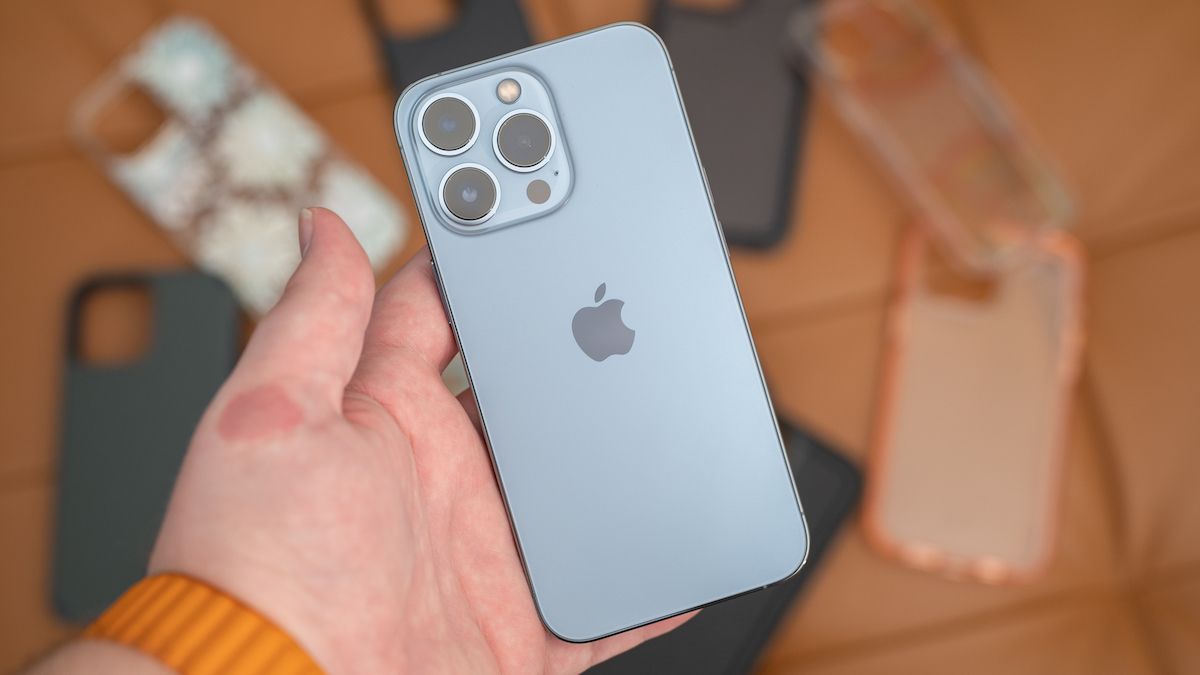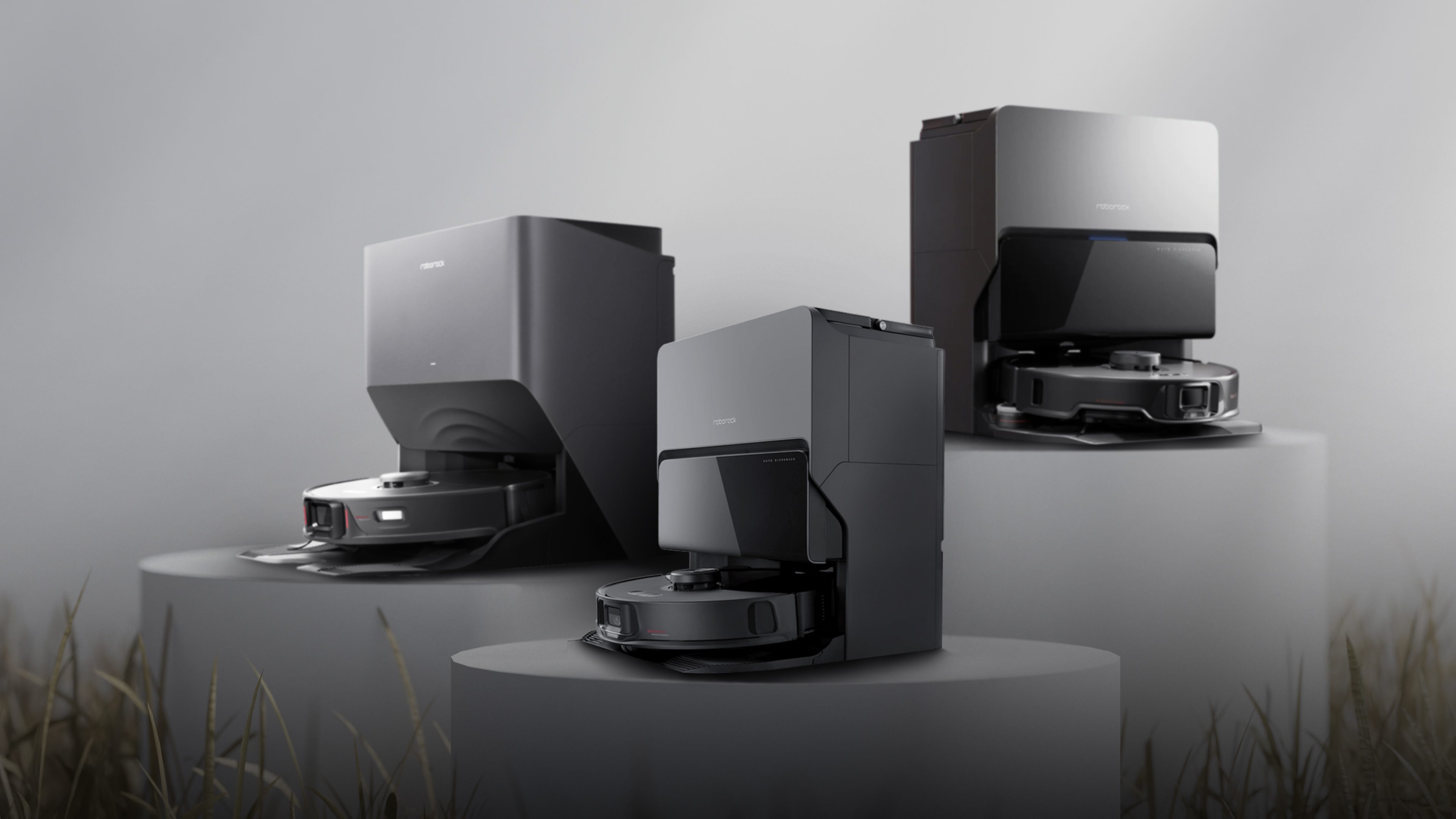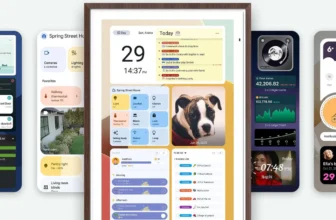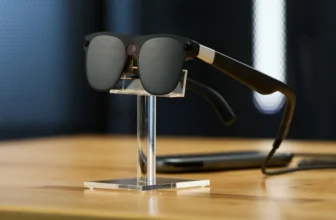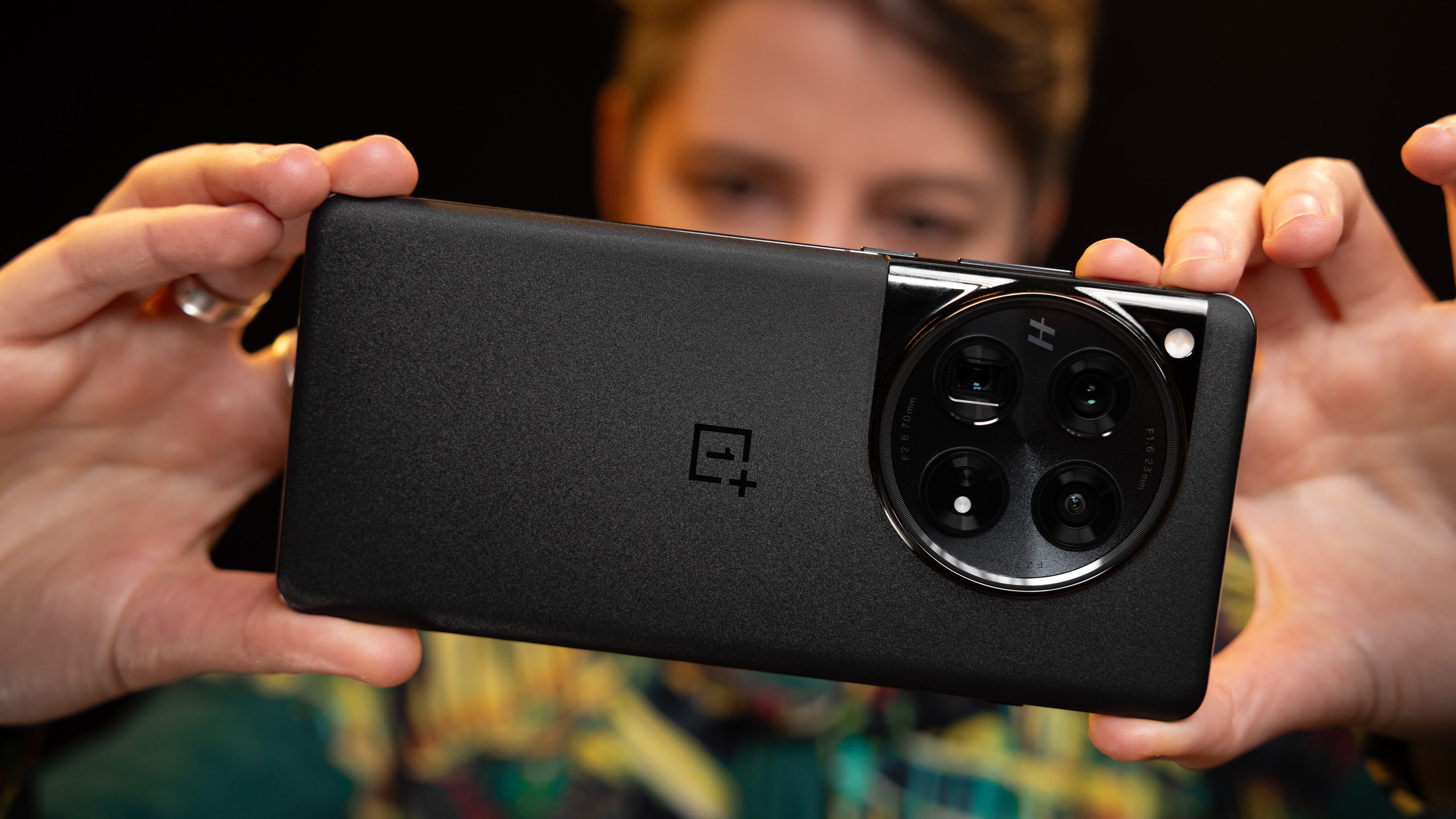
The OnePlus 12 makes a striking impression with its robust performance and exceptional camera quality. In the US, it stands as a formidable rival to industry giants like Apple, Google, and Samsung. However, in Europe, OnePlus faces unique challenges, particularly in navigating a ban due to a dispute over Nokia patents, and its close association with Oppo. Setting aside these market intricacies, the OnePlus 12 exemplifies the company’s commitment to staying competitive in the smartphone arena, underscoring its roots in a community-driven approach.
Good
- Sleek Design and Optimal Build Quality
- Colorful and Vibrant Display
- Reliable and Consistent Performance
- Versatile Camera Module
- Superior Photo Experience
- All-day Battery Life
- 50W Wireless Charging
Bad
- Doesn’t Break New Ground in Innovation
- Bulky Charger Adapter
- Close Similarity to Oppo Devices
OnePlus 12: All deals
In a nutshell
Despite the OnePlus team employing a myriad of adjectives to describe the OnePlus 12’s features and hardware capabilities, the device effortlessly stands out on its own merits. The OnePlus 12 is indeed a phone truly worthy of its name.
Equipped with an optimal hardware selection, including the Snapdragon 8 Gen 3 and up to 16GB of RAM, the OnePlus 12 offers a premium display experience, rapid wired and wireless charging, and a top-notch camera module for photography enthusiasts. Impressively, all these features come at a competitive price.
You can start pre-ordering the OnePlus 12 today, February 23, from the OnePlus official store, Amazon, and BestBuy US&CA (both in-store and online). The device will hit stores starting on February 6 available through the same retailers. In the US, OnePlus is offering a trade-in service for any phone, in any condition, granting a $100 discount.
At the official store, OnePlus is also providing a complimentary memory upgrade to 512GB, up to $700 in instant trade-in credit, a limited offer of a free wireless charger, and 12 months of 0% APR financing. This free memory upgrade option is available at e-commerce partners as well.
| OnePlus 12 | |
|---|---|
| Silky Black: 12GB + 256GB | $799.99 | €969 |
| Silky Black: 16GB + 512GB | $899.99 | – |
| Flowy Emerald: 16GB + 512GB | $899.99 | – |
| Offers* |
The question is: How can a company like OnePlus offer such outstanding value with a relatively small share of the smartphone market? The answer lies within this review, so keep reading to discover more.
Design
I’ve been frequently testing OnePlus devices lately, and to be honest, I’ve never been disappointed with their build quality and design choices. A consistent characteristic is their size: OnePlus phones are notably large, reflecting the company’s goal to offer expansive screens for content consumption
.
The device is available in two classic color options: Silky Black and Flowy Emerald. This time, I had the chance to test the black version, and I particularly appreciate that the texture on the back glass cover doesn’t easily pick up fingerprints. However, due to its size, I wouldn’t use this phone without a protective case.
Pros:
- Sleek design.
- Optimal build quality.
- Curved screen option.
- Alert Slider onboard.
Cons:
- Limited size availability: Only offered in a large size.
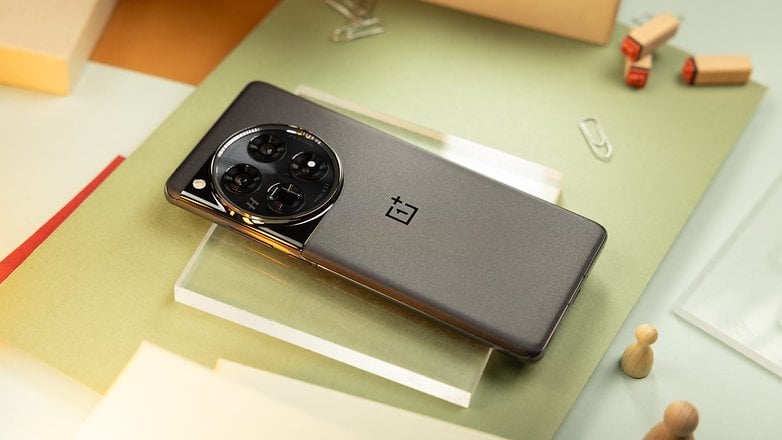
Truth be told, I’m not usually a fan of curved displays. However, devices with rounded lines almost always impress me upon review. The viewing experience is immersive, and the touchscreen functionality is smooth from the edge to the center, offering a unique swiping experience. Plus, there’s no need to worry about the size of the bezels, as they are practically nonexistent.
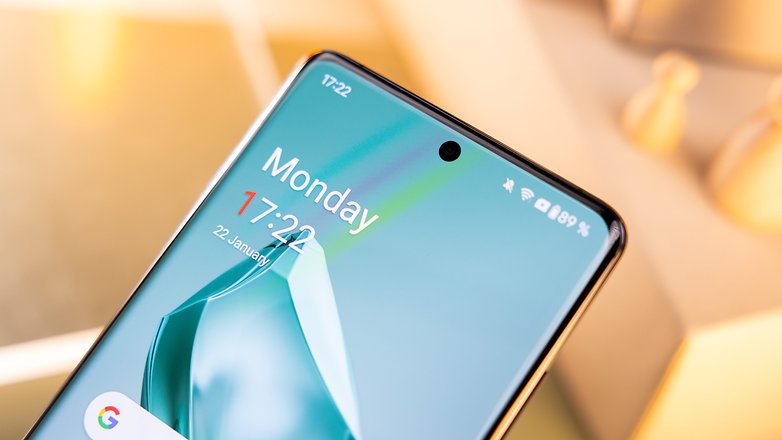
As mentioned, the device is only available in one size: large. With a 6.82-inch display, or 17.32 cm, you should expect some difficulty handling it with one hand, especially when trying to reach the volume buttons. Thankfully, unlocking the device with the in-screen fingerprint reader is virtually flawless and easy.
The main camera module on the back immediately draws the eye. It’s built into the phone’s chassis and integrated with Gorilla Glass 5. I personally like the design of the module. Although OnePlus describes it as a nod to ‘luxury watches with a hollow-curved design’, to me, it more closely resembles a classic camera lens, complete with aperture and focal length data. I really appreciate this design choice.
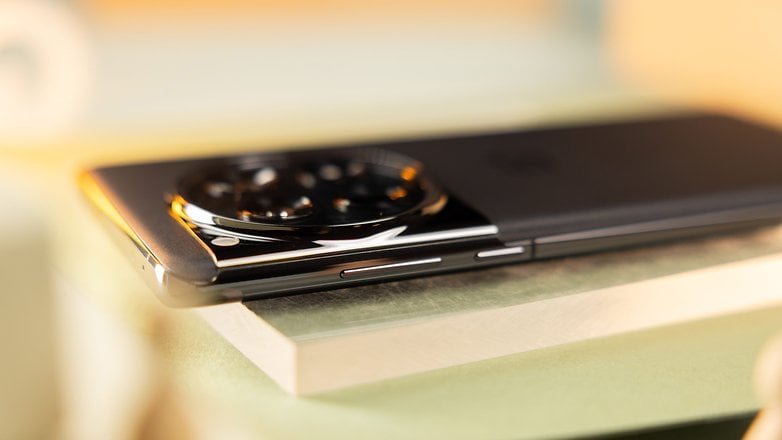
Display
The display of the OnePlus 12 is colorful and vibrant, showcasing the leading features of a premium display in 2024. It offers a variable refresh rate ranging from 1 to 120 Hz, optimizing battery consumption. The QHD image experience is delivered at a crisp 510 pixels per inch, coupled with a peak brightness performance of 4,500 nits
.
Pros:
- Colorful and vibrant display: Peak brightness of up to 4,500 nits.
- Variable refresh rate: Ranges from 1 to 120 Hz.
Cons:
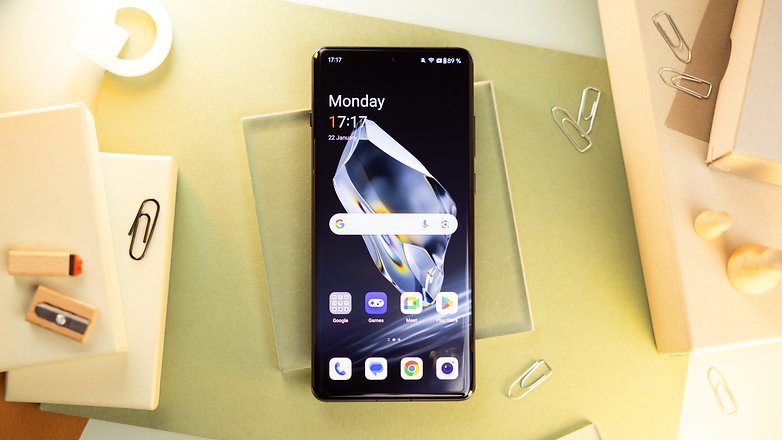
Trust me, these impressive specifications translate into an exceptional viewing experience. As a typical feature of OLED screens, the OnePlus 12 offers very wide viewing angles. Even at extremely sharp angles, there is a significant retention of quality in terms of color consistency and image clarity.
Furthermore, the 6.82-inch display, with its screen-to-body ratio of 93.5%, offers notable benefits for the user experience, whether you’re browsing, streaming videos, or gaming. Moreover, at this level of resolution, you get a higher level of detail.
OnePlus also doesn’t skimp on eye protection features. The phone includes convenient Eye Comfort and Reading Mode shortcuts directly in the quick features tiles, or you can set them to activate automatically in the system settings. Additionally, with a brightness of 4,500 nits, you won’t need to worry about using the phone in direct sunlight.
Software and UI
Let’s dive into the software on the OnePlus 12. This device operates on OxygenOS 14.0, which is based on Android 14, and it was up-to-date with the latest security patch from January 5. Oh, and here’s something cool: similar to the OnePlus Open we reviewed last year, the company has really upped their game with their update policy. This means that the OnePlus 12 is set to receive four years of major Android upgrades and five years of security updates
.
Pros:
- A solid update policy.
- There’s barely any unnecessary apps or bloatware.
Cons:
- It’s not breaking new ground in terms of innovation.
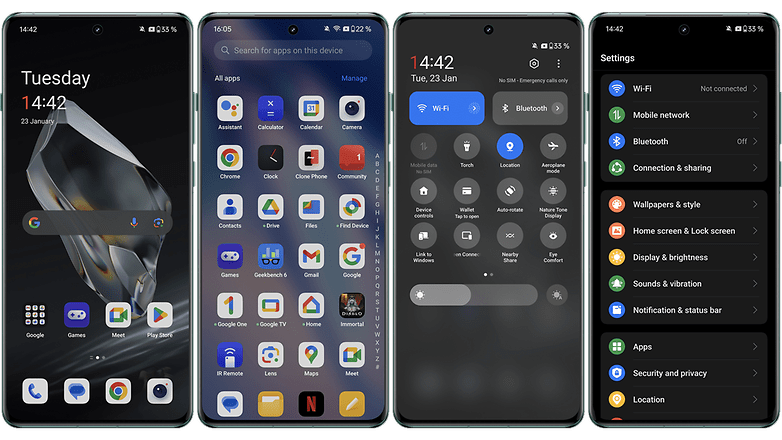
Besides the solid update policy, the Android 14 got some neat updates that the OnePlus 12 is rocking. Firstly, the Health Connect app centralizes health and fitness data from various devices, allowing easy access and management. The lock screen now offers customization options, including different clock styles and colors.
The system also enhances privacy by providing a list of apps that have changed their location data access. Lastly, there are improvements in the system’s handling of fonts and languages, allowing for more personalized settings and better accessibility. For a detailed overview of all the features, you can visit our ultimate Android 14 guide.
When it comes to OxygenOS, this is a software with a clean and fluid experience—there are barely any unnecessary apps or bloatware. The operating system emphasizes individualization, with a variety of themes, icons, and always-on display options, giving more control over their phone’s visual appeal.
On the other hand, while it’s beneficial to have a “clean” software experience, OnePlus is not notably innovative in certain areas. The company has yet to fully embrace AI technology and still heavily relies on Google’s solutions for such features. This approach reflects a more cautious stance towards the rapidly evolving AI landscape in the mobile industry.
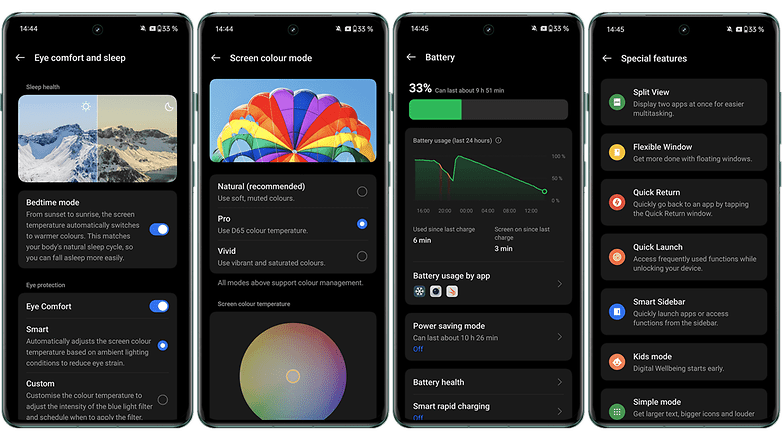
Performance
The OnePlus 12 comes equipped with the Snapdragon 8 Gen 3 processor, keeping pace with
the best Android devices on the market today. It pairs this with options of 12/16GB LPDDR5X RAM and 256GB/512GB UFS 4.0 internal storage variants, showcasing significant performance potential
.
To further optimize this, OnePlus has introduced its own proprietary platform, the Trinity Engine. According to the company, this platform is designed to ensure a consistent and smooth experience, whether it’s for heavy-duty tasks, multitasking, or sustained long-term usage. This approach is similar to the ‘Qualcomm Snapdragon for Galaxy’ strategy that Samsung employed in its recently released Galaxy S24 series.
Pros:
- Reliable and consistent performance.
- 4 years of major Android upgrades and 5 years of security updates.
Cons:
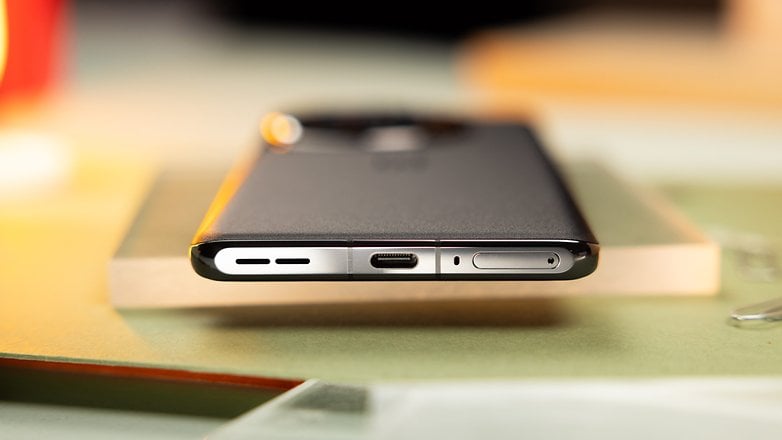
For the purpose of this review, I am comparing the OnePlus 12 benchmarks with those of the Samsung Galaxy S24 Ultra, a device we recently had hands-on experience with. Additionally, I am including the Apple iPhone 15 (review) and the Google Pixel 8 Pro (review) in the comparison because they fall within the same price range. Apart from the Ultra, I believe the other two devices should still be considered direct competitors to the OnePlus 12 in terms of performance.
Having analyzed the benchmark results of these four devices, we can conclude that the OnePlus 12 shows strong performance, especially in graphical benchmarks, where it often leads or competes closely with top-tier smartphones. It outperforms the Pixel 8 Pro in all tests and competes well with the iPhone 15, although it falls behind in CPU performance. The Samsung Galaxy S24 Ultra, with its specialized Snapdragon chip, appears to be the strongest competitor, outperforming the OnePlus 12 in both benchmarks.
| OnePlus 12 (Snapdragon 8 Gen 3) |
Samsung Galaxy S24 Ultra (Snapdragon 8 Gen 3 for Galaxy) |
Apple iPhone 15 (A16 Bionic) |
Pixel 8 Pro (Tensor G3) |
OnePlus 11 (Snapdragon 8 Gen 2) |
|
|---|---|---|---|---|---|
| 3DMark Wild Life Extreme Stress Test |
|
|
|
|
|
| Geekbench 6 |
|
|
|
|
|
When compared directly to its predecessor, the OnePlus 11 (review), there’s a clear generational leap in performance. The OnePlus 12 shows improved graphical performance and processing power, indicating that the upgrade to the Snapdragon 8 Gen 3 has provided tangible benefits in both graphics and CPU tasks.
According to the manufacturer, the OnePlus 12 is equipped with an “advanced Dual Cryo-velocity VC Cooling System.” This system is specifically designed to maintain a cool temperature for the phone during intensive use. It features a dual vapor chamber design, which effectively dissipates heat, particularly from essential parts like the processor.
OnePlus claims that their innovative cooling system in the OnePlus 12 significantly enhances heat dispersion, reducing the temperature of key components by up to 7°C. In my time using the phone, it rarely got hot, except when I was doing some really heavy testing. This makes me think that OnePlus did a great job with their cooling tech in the phone.
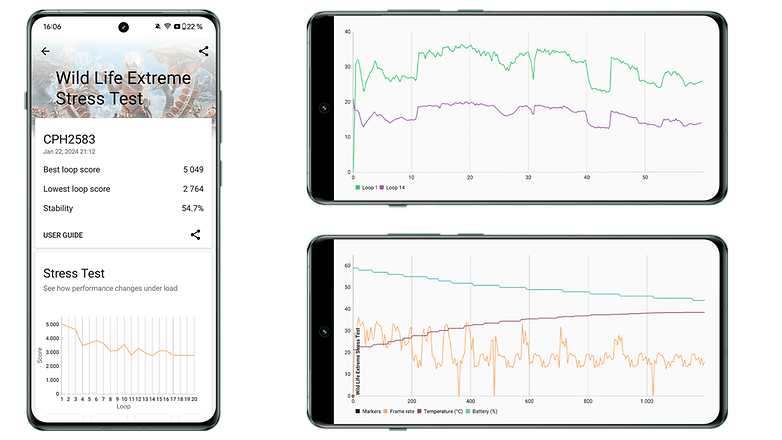
That said, in everyday use, the OnePlus 12 turned out to be an excellent companion. During approximately 60-minute gaming sessions of Diablo Immortal, I didn’t encounter any issues with frames per second—however, it’s worth noting that this is not the most graphically advanced game available for Android.
Multitasking is exceptionally smooth, and even the camera’s image post-processing is quite speedy. Again, this level of performance should not come as a surprise, given the hardware choices for this device.
One more thing I want to mention is how OnePlus still listens to its community. After spending a few years in the smartphone market, it’s pretty cool to see features like an Infrared Remote Control built into a phone. To me, this is a clear nod to what the community wants. The OnePlus IR control is capable of communicating with 15 types of electronic devices, including air conditioners, lights, cameras, heaters, and robotic vacuum cleaners. Isn’t that neat?
Camera
The OnePlus 12’s camera setup really shows how much OnePlus values photography. It’s got a three-lens system: a 50 MP main camera (Sony LYT-808), a 48 MP ultra-wide camera, and a 64 MP telephoto camera that can zoom in 3 times without losing quality. Plus, there’s an impressive—however not really reliable—120x digital zoom. For selfies, there’s a sharp 32 MP camera on the front
.
This is a true versatile camera module, offering photos that look very true to life in all kinds of situations.
Pros:
- Versatile camera module.
- Superior photo experience.
- Delivers photos that look very true to life.
- The 6x zoom within the sensor is dependable.
Cons:
- The 120X Ultra Res zoom feature doesn’t quite meet expectations.
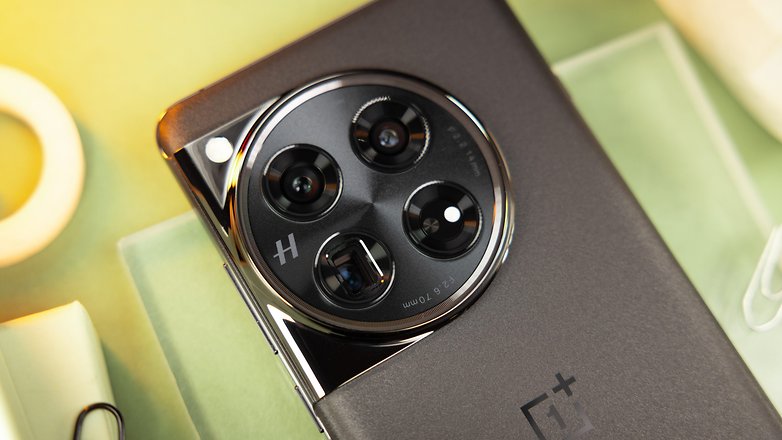
Although the main camera of the OnePlus 12 differs from that of the OnePlus Open (Sony LYTIA-T808), their ultrawide and telephoto cameras are the same, as is the main front camera. I mention this because, much like the photo experience with the OnePlus Open, the OnePlus 12 also left a positive impression on me.
The OnePlus 12’s main camera delivers clearer and brighter photos that look very true to life. For that, OnePlus teams up with Hasselblad once again on the new flagship. Hasselblad’s influence is clear in the natural and accurate color representation, particularly in the portrait mode.
For those who like to tweak their shots, the device comes with a Master Mode—which is an improved Pro Mode for fine-tuning images. I didn’t go too deep into this for the review, but it’s a great feature for those who love photography.
Without further ado, let’s explore what the OnePlus 12 camera setup can do.
Daylight
In daylight, the main camera nailed almost every photo—even in terrible weather as the winter in Berlin. The pictures come out lively yet realistic. The camera handles different lighting brilliantly, keeping details in both bright and dark spots.
The 64MP telephoto camera is a standout, boasting a big 1/2-inch sensor. It offers 6x in-sensor zoom and an (un)impressive 120x Ultra Res Zoom.
I already said that in another review, but I’m a fan of the 2x zoom. However, the 3x and 6x zooms are even nicer on this phone. The camera smoothly shifts from a wide shot to a 6x zoom without losing too much quality. But, the Ultra Res Zoom is best used between 10x to 30x; beyond that, it’s less effective.
Night shots
The night shots are consistently good. The lens captures light effectively, avoiding overexposed images. I had a similar impression with the OnePlus Open. Even though the OnePlus 12 has a relatively different main lens, my impression remains unchanged.
Selfies
When it comes to the selfie camera, the OnePlus 12 delivers bright and colorful images, especially in low light. However, while I really enjoyed using the portrait mode, I still feel that it overdoes the edges of the object in focus. But this might just be me being picky.
Battery and Charging
The OnePlus comes equipped with a 5,400 mAh battery, which is an increase of 400 mAh over its predecessor. Additionally, while the company has retained the 80W wired charging capability, it has introduced a 50W wireless charging option to the series in 2024. This upgrade, absent in last year’s model, suggests that the company is responsive to community feedback and evolving consumer needs
.
Pros:
- All-day battery life.
- 50W wireless charging.
Cons:
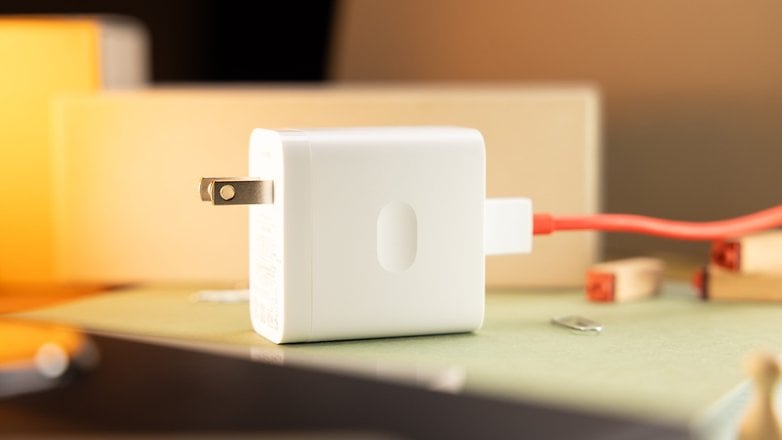
I must be honest with you, I haven’t had the chance to use the OnePlus 12 in a typical day-to-day routine. My review process involved running benchmarks, extensive camera usage, and longer gaming sessions—activities not usually part of my regular 24-hour day.
Despite this, I’m fairly confident that most users will easily achieve all-day battery life with this phone. Even on my most intensive testing days, involving over an hour of camera use, gaming, and benchmarking, the phone reliably lasted the entire day.
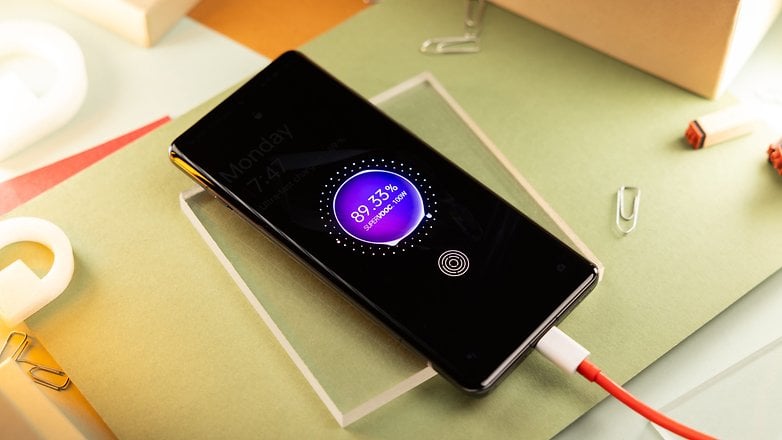
The 80W wired charging is truly impressive, rapidly charging the phone to 50% in just 15 minutes. Plus, for those who’d rather not carry the bulky charger, there’s a convenient 50W wireless charging option—a dream come true!
Lastly, in the PCMark Work 3.0 Battery Life test, with the display set to 247 nits of brightness and flight mode enabled, the OnePlus 12 ran for 19 hours and 25 minutes, with 20 percent battery remaining, which is quite impressive.
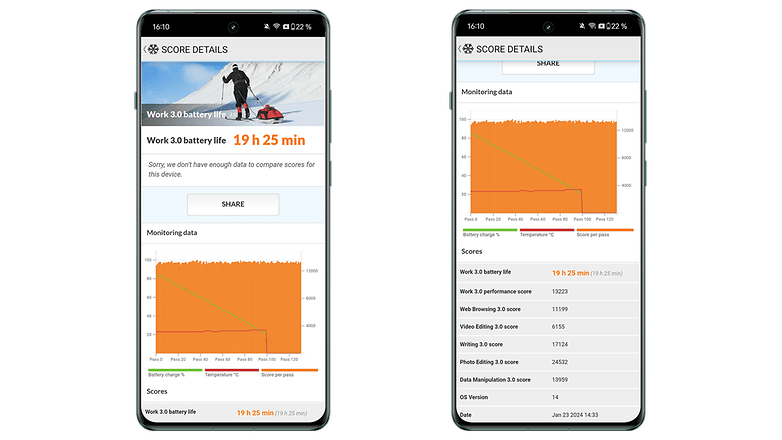
The OnePlus 12 features a USB 3.2 port, which means it can transfer files faster than older USB versions. This port also allows you to connect the phone to a desktop PC for use with a larger screen.
OnePlus 12 technical specifications
| Table of specifications | |
|---|---|
| Product | |
| Image |  |
| Display |
|
| SoC | |
| RAM | |
| Memory | |
| OS |
|
| Camera |
|
| Front-camera |
|
| Battery |
|
| Connectivity |
|
| Dimensions and weight |
|
Final verdict
The OnePlus 12 really stands out in the smartphone market. Here’s a quick overview: It boasts a stylish design and excellent build quality, along with a bright and eye-catching display. Its performance is both steady and dependable, and the camera is quite flexible for different shots. Plus, it has a battery that lasts all day and comes with a cool feature—50W wireless charging, which has been a big hit with many users.
Nonetheless, OnePlus seems to fall short in terms of groundbreaking innovation, heavily relying on Google’s software and features. Additionally, outside the United States, where OnePlus directly competes with its sister company Oppo, the OnePlus 12 may not be the standout option it is poised to be. While there is still a robust community following surrounding the brand, questions linger about its future direction.
Indeed, these concerns delve into the realm of business politics, and it’s increasingly difficult to disentangle one from the other. This is especially true when respected colleagues assert that OnePlus’s fate may be sealed due to its association with Oppo. While I wholeheartedly understand their perspective, I can still discern a promising future for OnePlus in the US if the company continues to produce devices of this caliber.
At the start of this review, I posed a question: How does OnePlus, with its modest market share, deliver such exceptional value in its smartphones? The answer lies in its connection with Oppo. OnePlus leverages the same hardware and software as Oppo, allowing it to maintain its commitment to user-friendly features and affordability.
Now, for those residing in regions where the OnePlus 12 remains a prominent choice alongside Apple, Samsung, and Google, I encourage you to explore this latest flagship offering. However, for those who view Oppo as a more accessible alternative—maybe with the Find X7 Ultra—, I can only advise you to follow your instincts.
What OnePlus brings to the table is undeniably impressive and backed by a dedicated community, and my hope is that this continues to be the case in the years to come. What is your opinion?











































